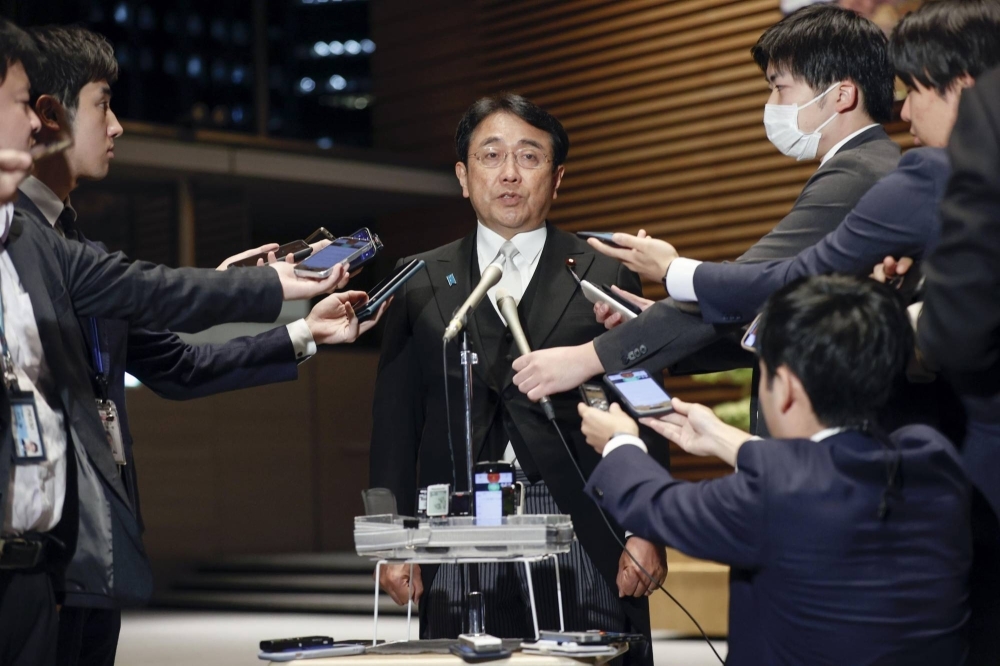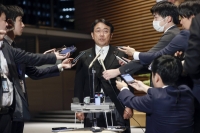Japanese authorities do not have specific exchange-rate levels in mind when deciding when to intervene in the currency market, Deputy Finance Minister Ryosei Akazawa said Friday.
"Any intervention will be aimed at addressing excess volatility in the market," Akazawa told parliament.
"We won't intervene just because the yen is weakening," he said, when asked by an opposition lawmaker whether Tokyo would step into the currency market again to stem sharp declines in the currency.
Bank of Japan Gov. Kazuo Ueda also told the same parliament committee meeting that it was hard to say decisively that a weak yen was negative for the country's economy.
"It's true a weak yen has a negative effect by accelerating rises in domestic inflation through an increase in import costs," Ueda told parliament.
"On the other hand, a weak yen has positive effects such as boosting exports, inbound consumption and profits of globally operating Japanese companies," he said.
Ueda said it was desirable for currencies to move stably reflecting economic fundamentals. He declined to comment on specific yen levels.
In Japan, the finance ministry decides whether and when to intervene in the currency market. The BOJ acts as an agent and executes orders made by the ministry.




